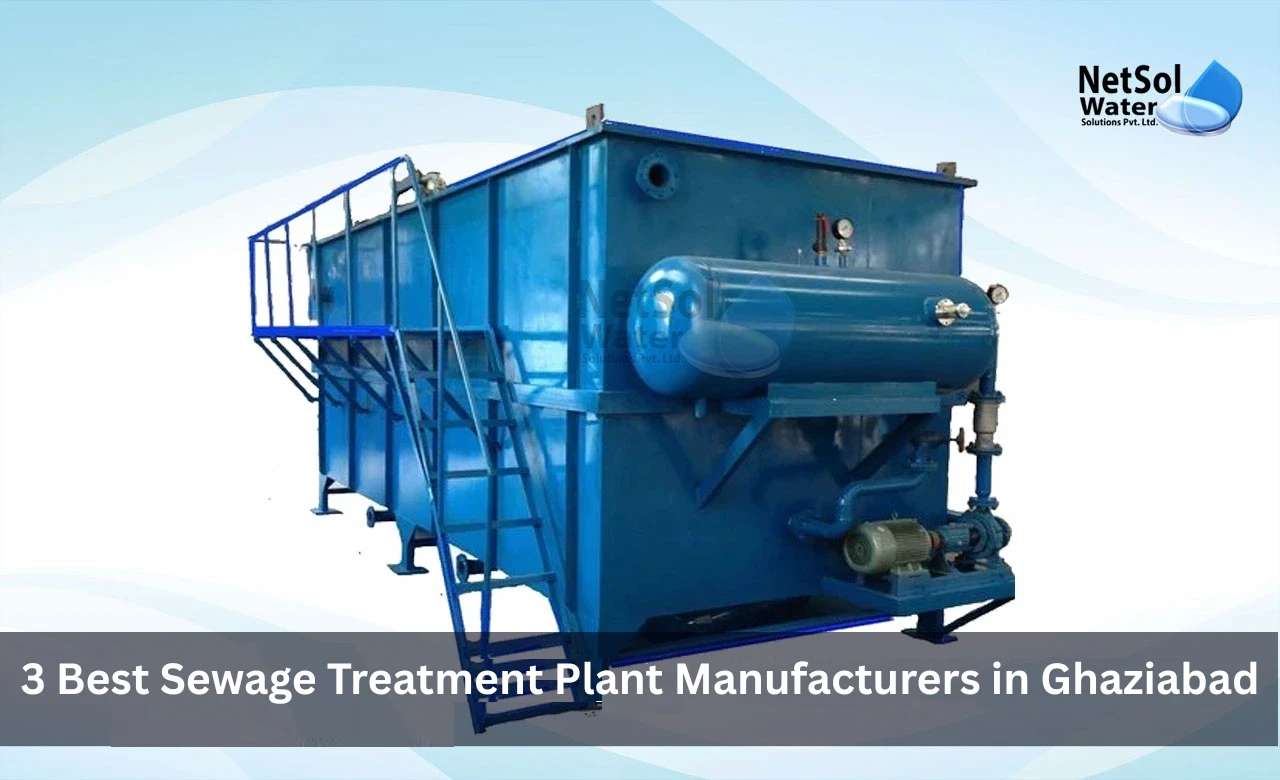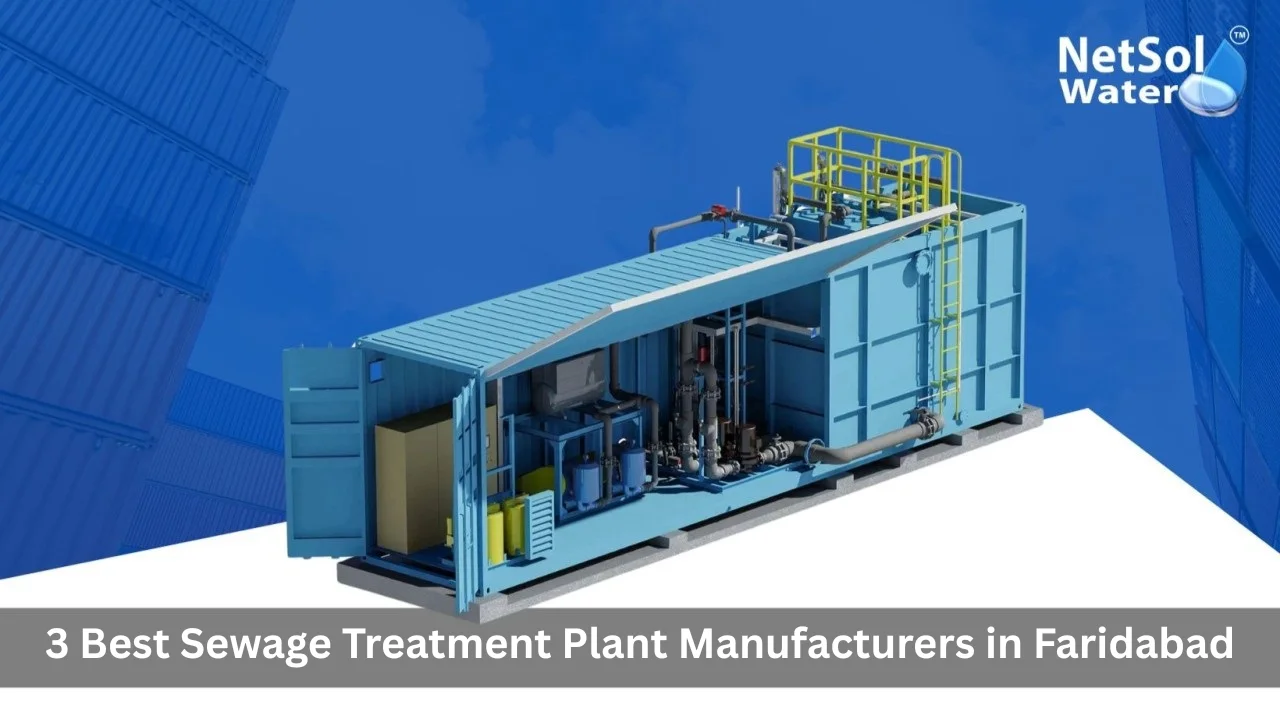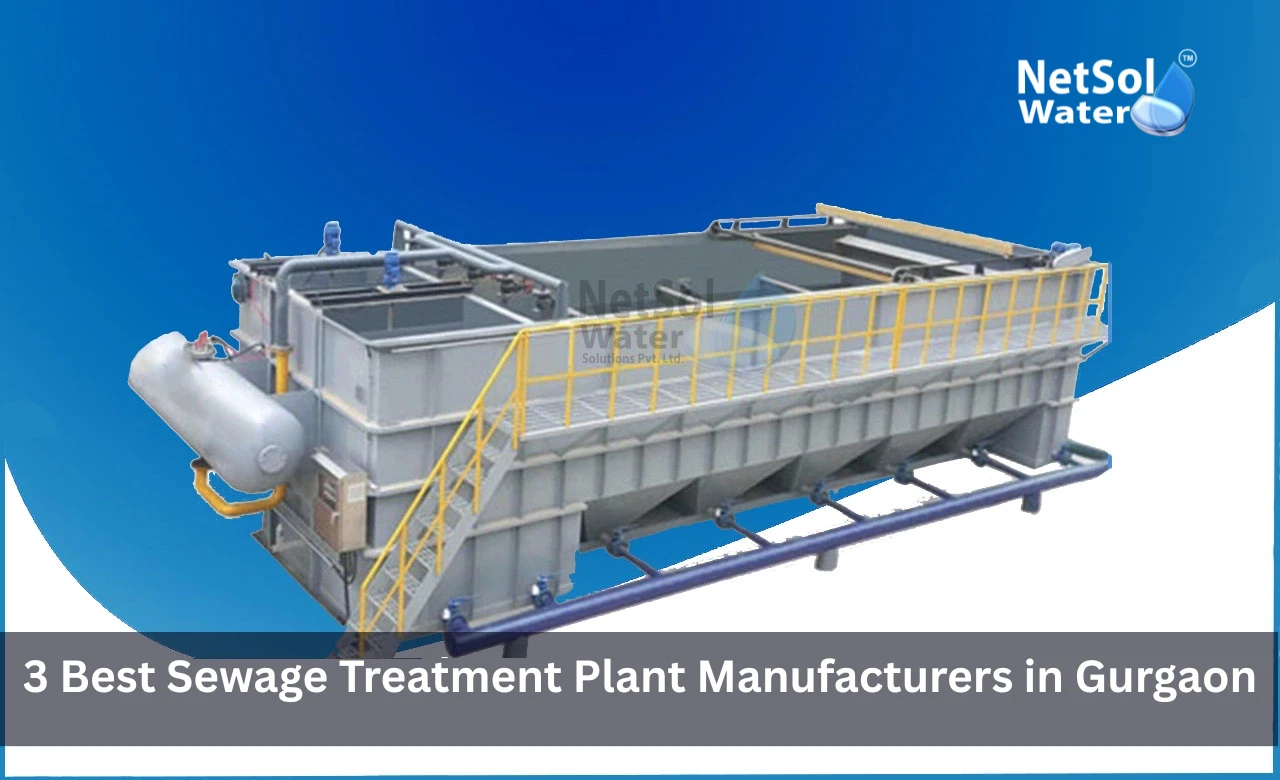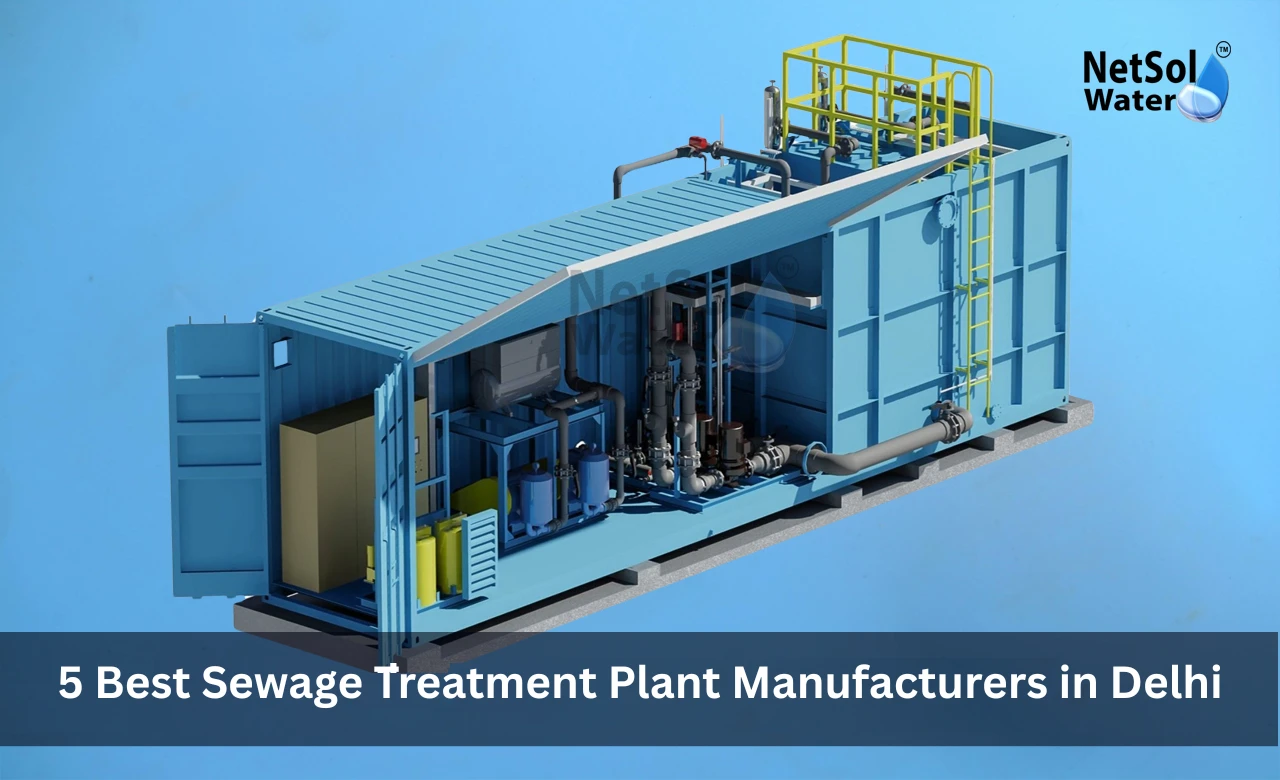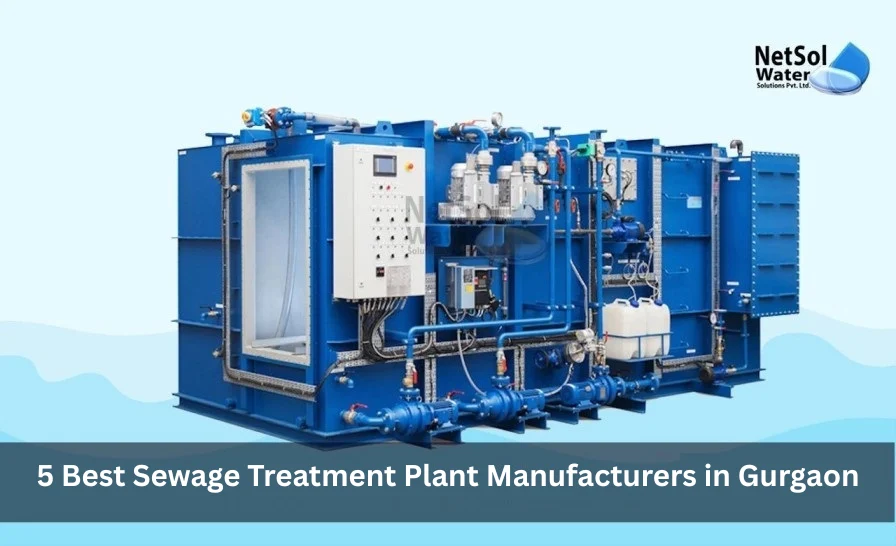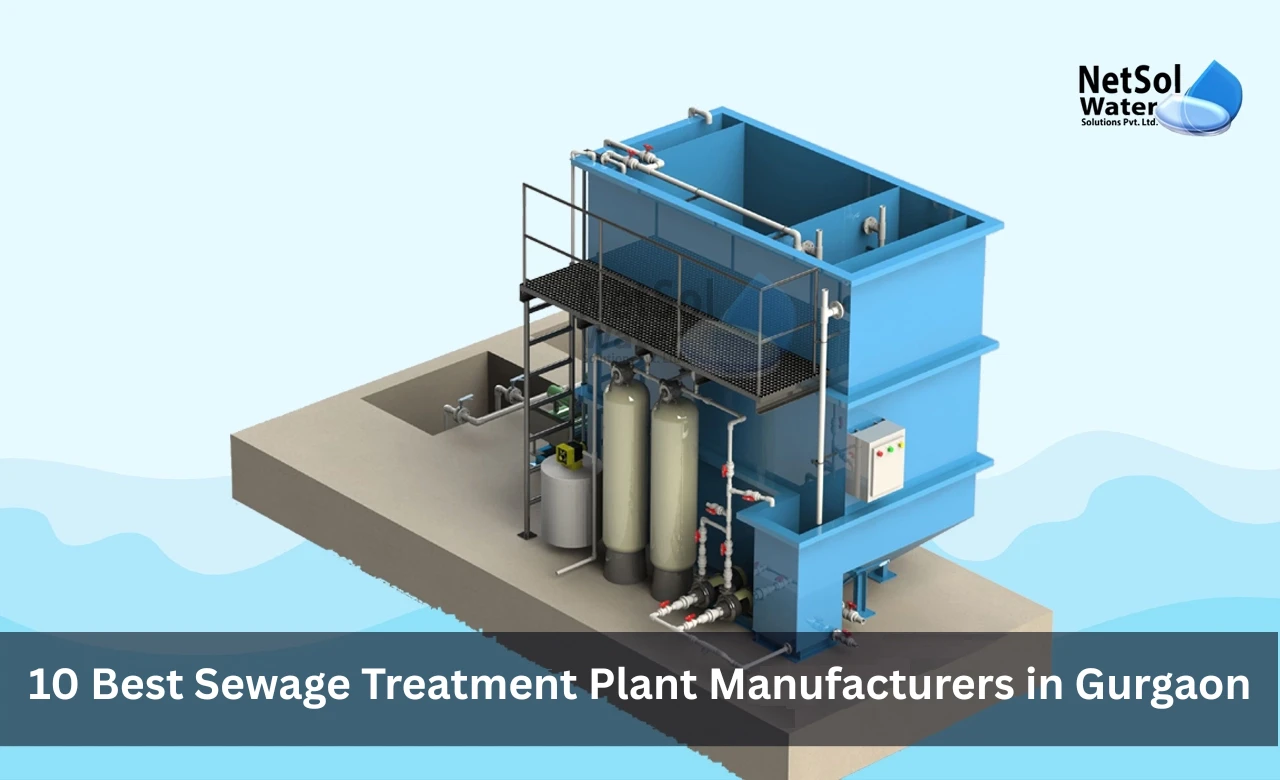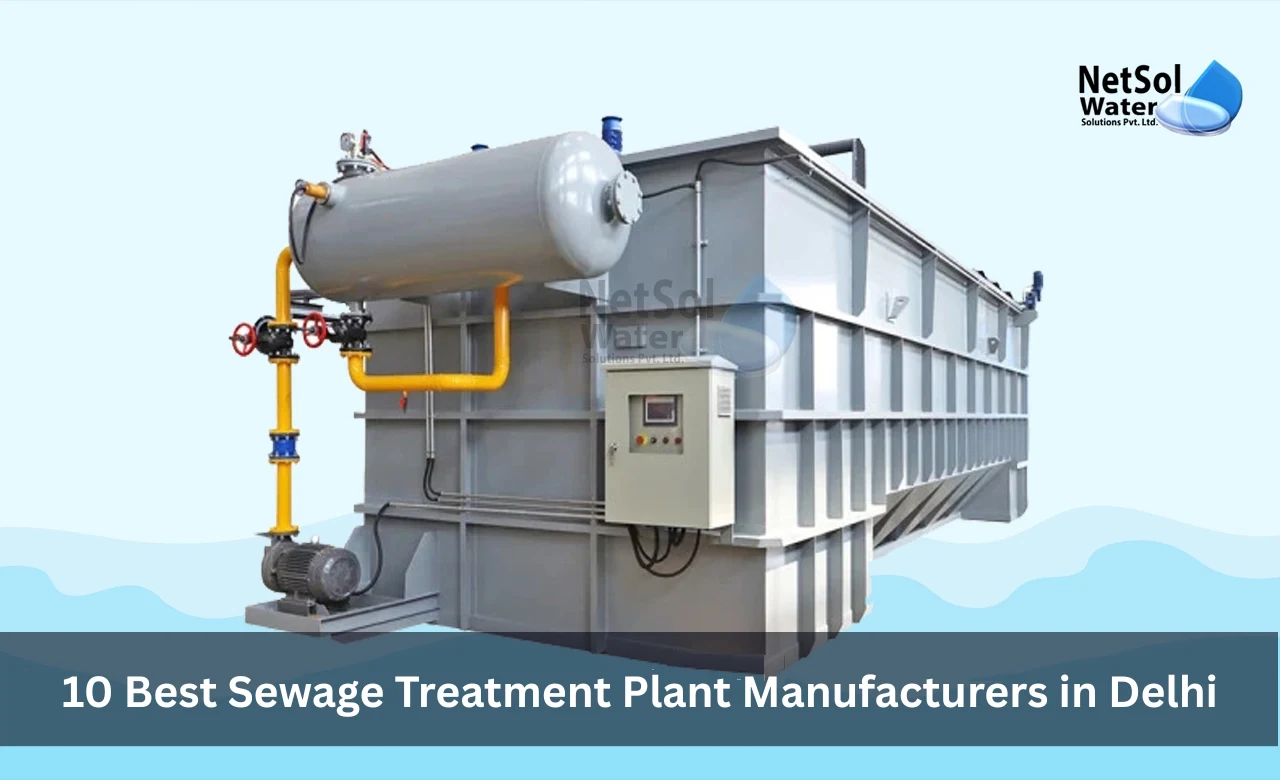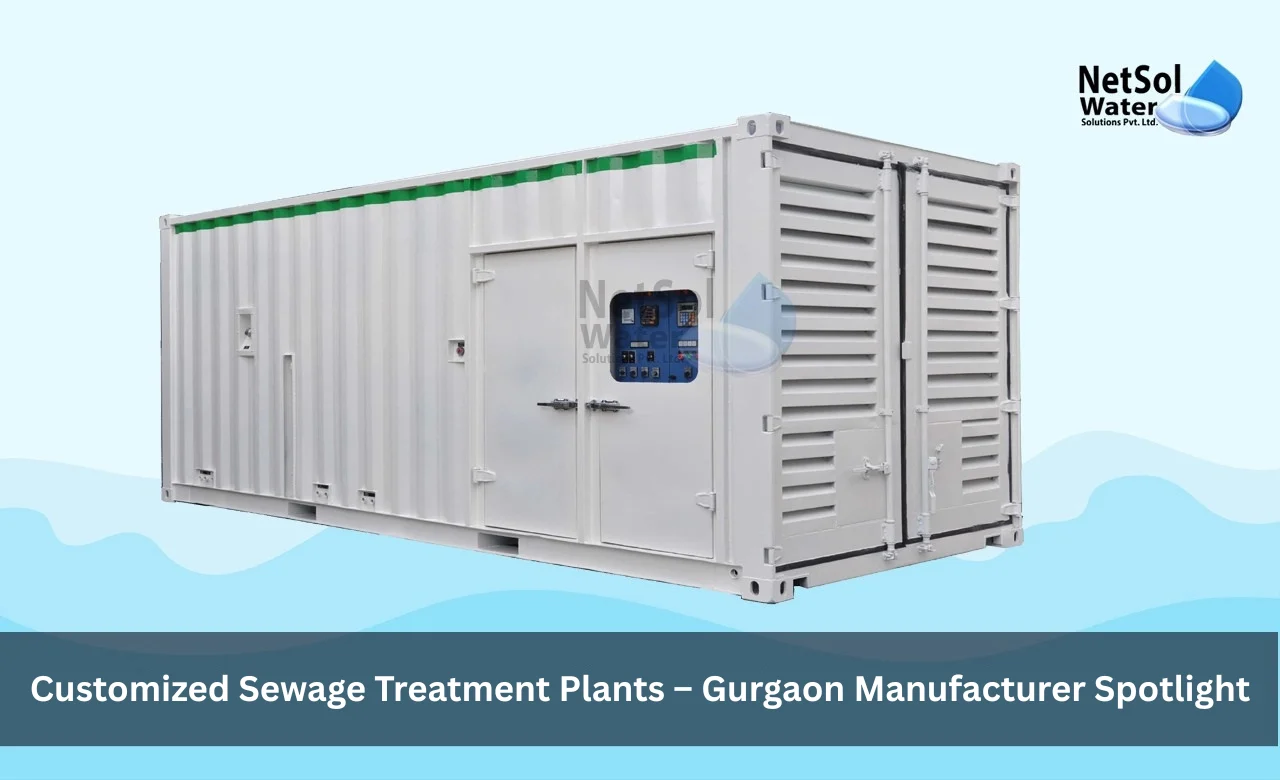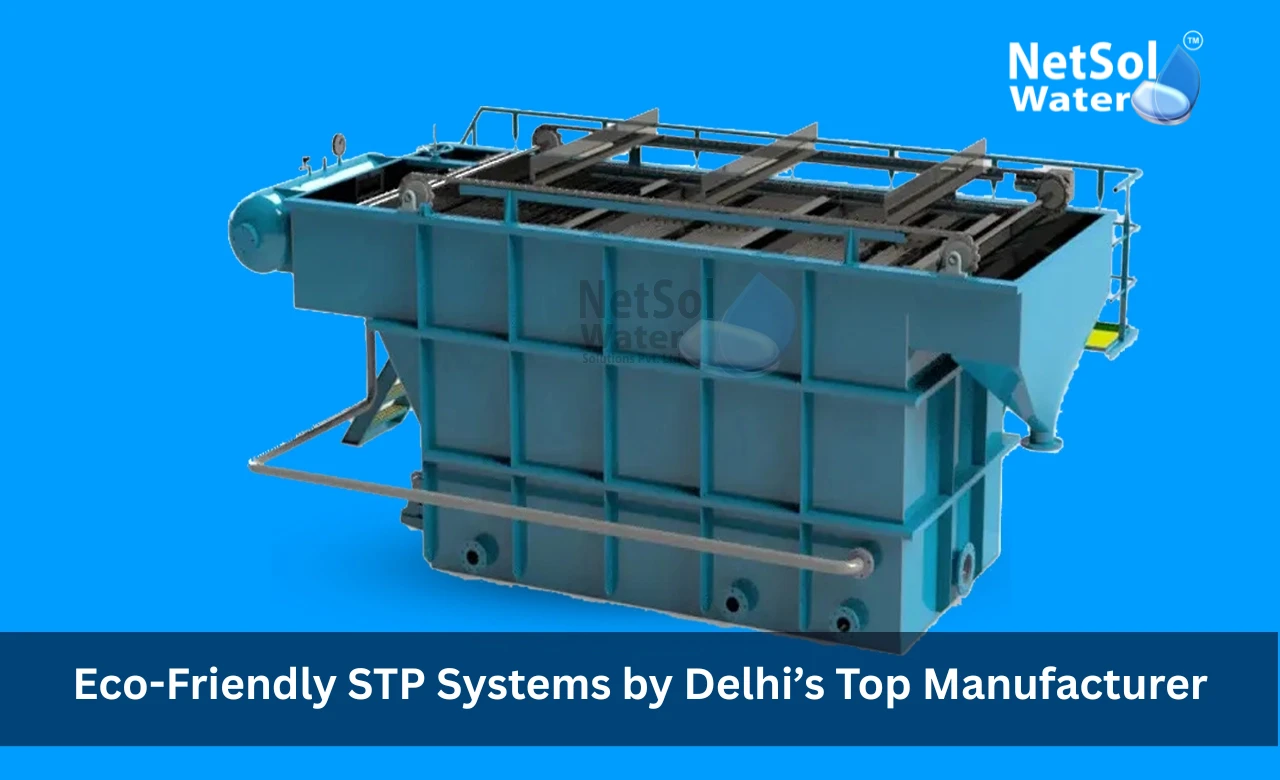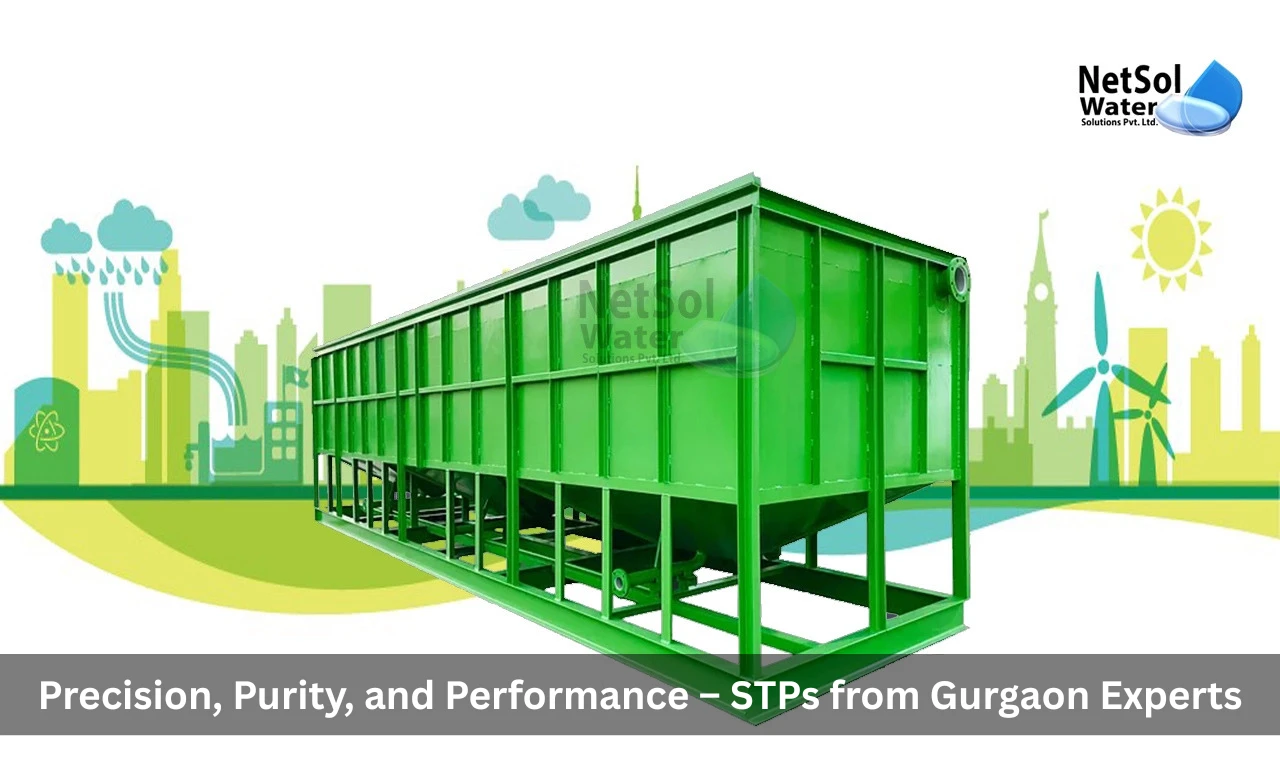3 Best Sewage Treatment Plant Manufacturers in Ghaziabad
Ghaziabad is a rapidly developing town with growing needs for sustainable water and wastewater management systems. The most important solution among them is the implementation of efficient Sewage Treatment Plants, by which industrialists and communities can responsibly treat wastewater and conserve the environment.
These are the 3 best sewage treatment plant manufacturers in Ghaziabad that offer effective, efficient, and innovative STP systems to address the increasing demand for clean water and treated wastewater in the city.
3 Best Sewage Treatment Plant Manufacturers in Ghaziabad
1. Netsol Water
We at Netsol Water feel privileged to be included in the 3 best sewage treatment plant manufacturers in Ghaziabad. Our STP design and supply facilities have helped many residential complexes, commercial complexes, and industrial plants achieve their wastewater treatment goals in an effective way.
We are experienced with the particular wastewater patterns in Ghaziabad and offer project-specific solutions for small as well as large projects. From small plants that are resident complex-based to STPs that are industry-based with large capacities, we offer efficient systems that meet local regulations.
How we are different from the 3 best sewage treatment plant manufacturers in Ghaziabad:
- Our plants utilize the most state-of-the-art biological treatment technology with superior effluent quality.
- We focus on low-maintenance and low-energy design.
- Our operations include design, installation, regular maintenance, and site checking.
- We provide clients with quick repairs and technical support.
You have a friend in us who will help you keep the environment safe and increase the reuse potential of water through high-quality sewage treatment.
2. Aquatech Systems
Aquatech Systems is renowned as one of the 3 best sewage treatment plant manufacturers in Ghaziabad. They handle high-end STP technology like MBBR (Moving Bed Biofilm Reactor), SBR (Sequencing Batch Reactor), and MBR (Membrane Bioreactor) plants.
Aquatech handles particular solutions to municipal, commercial, and industrial wastewater issues. Their STPs are valued due to space-saving design, quick installation, and ability to handle fluctuating wastewater flow.
Among the 3 best sewage treatment plant manufacturers in Ghaziabad, Aquatech stands apart from the rest with the utilization of automation and remote monitoring of their plants, making it effortlessly easy to run and discharge standards.
3. Envirotech Engineering
Envirotech Engineering is another reliable name among the 3 best sewage treatment plant manufacturers in Ghaziabad. They have installed different STPs in residential townships, IT parks, and industrial estates.
Famed for robust engineering and economical solutions, Envirotech provides turnkey solutions including consultancy, plant manufacturing, installation, and commissioning. Their plants can effectively remove BOD, COD, and suspended solids and minimize sludge formation.
How to Select the Best Sewage Treatment Plant Manufacturer in Ghaziabad
The best manufacturer among the 3 best sewage treatment plant manufacturers in Ghaziabad would be chosen considering the below factors:
- Technology and Process: Ensure that the manufacturer provides the appropriate treatment technology for your amount and nature of wastewater.
- Customization: Your STP must be designed to suit your site conditions and wastewater characteristics.
- Compliance: The facility must comply with the requirements of Ghaziabad Pollution Control Board as well as environmental legislations.
- Support and Service: After-sales services, maintenance, and timely response are necessary.
- Experience and Reputation: Look for manufacturers with experience of completed projects successfully and satisfactory client reviews.
Conclusion
The necessity of sewage treatment cannot be overemphasized in a fast-developing city like Ghaziabad. Sewage is treated properly to ensure public health and water conservation as well as to avert local water bodies from being contaminated.
Among the 3 best STP plant manufacturers in Ghaziabad, Aquatech Systems, Netsol Water, and Envirotech Engineering have become reliable names providing effective, high-quality, and sustainable STP solutions.
We at Netsol Water continue to work hand in hand with clients to develop and implement sewage treatment plants not only in accordance with norms but also positively through water reuse and energy conservation.
Choosing a suitable STP manufacturer from these top three will help achieve your wastewater treatment goals and set the stage for a cleaner, healthier Ghaziabad.
Do you need an advice or assistance on selecting the best water and waste water treatment unit? We have solutions for all your problems!
Let us know your problem, our experts will make sure that it goes away.
For an assistance or related query,
Call on +91-9650608473
Or write us at enquiry@netsolwater.com

